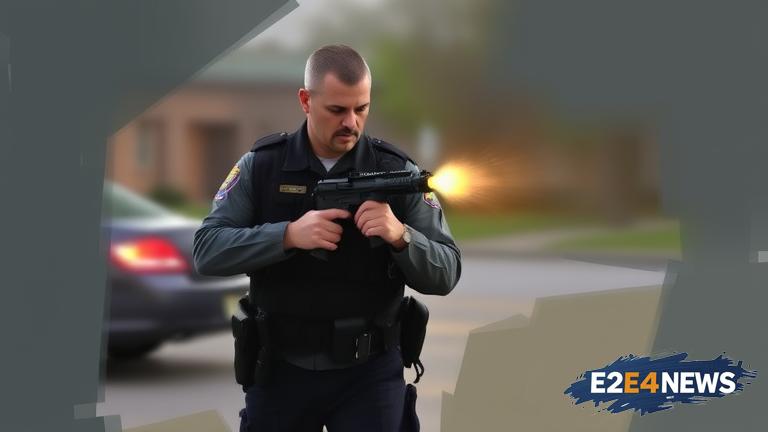A former Atlanta police officer who used a Taser on a deacon during an incident in 2020 will not be charged in connection with the man’s death, according to the Fulton County District Attorney’s office. The decision was made after a thorough investigation into the incident, which occurred on June 22, 2020. The deacon, who was 62 years old at the time of his death, was reportedly acting erratically and posing a threat to himself and others when the officer deployed the Taser. The officer, who has since resigned from the force, claimed that he used the Taser in an attempt to subdue the deacon and prevent him from harming anyone. However, the deacon’s family and community members have disputed this account, arguing that the officer used excessive force and that the Taser was not necessary in the situation. The investigation into the incident was led by the Georgia Bureau of Investigation (GBI) and included a review of body camera footage, witness statements, and other evidence. The GBI’s findings were then presented to the District Attorney’s office, which ultimately decided not to pursue charges against the former officer. The decision has been met with outrage from the deacon’s family and community members, who argue that justice has not been served. The incident has also sparked a wider conversation about police use of force and the need for greater accountability and transparency within law enforcement agencies. The deacon’s family has called for further investigation and action, including the implementation of new policies and procedures to prevent similar incidents from occurring in the future. The city of Atlanta has also faced criticism for its handling of the incident, with some arguing that the city has not done enough to address the underlying issues that led to the deacon’s death. The incident has also raised questions about the use of Tasers by law enforcement officers and the potential risks and consequences associated with their use. In recent years, there have been numerous incidents of people dying after being Tasered by police, highlighting the need for greater caution and restraint when using these devices. The deacon’s death has also sparked a renewed focus on the importance of de-escalation techniques and crisis intervention training for law enforcement officers. Many have argued that the officer in this case failed to use adequate de-escalation techniques, instead resorting to the use of force. The incident has also highlighted the need for greater community engagement and outreach by law enforcement agencies, particularly in communities of color. The deacon’s family and community members have argued that the incident is a symptom of a larger problem of systemic racism and bias within law enforcement agencies. The city of Atlanta has pledged to take steps to address these issues, including the implementation of new policies and procedures aimed at promoting greater accountability and transparency. However, many have expressed skepticism about the city’s commitment to reform, arguing that more needs to be done to address the underlying issues that led to the deacon’s death. The incident has also sparked a wider conversation about the need for police reform and the importance of holding law enforcement officers accountable for their actions. The deacon’s family has called for the implementation of new laws and policies aimed at preventing similar incidents from occurring in the future. The incident has also highlighted the importance of community-led initiatives and advocacy efforts aimed at promoting greater accountability and transparency within law enforcement agencies. Many have argued that the incident is a wake-up call for the city of Atlanta and the wider community, highlighting the need for greater action and advocacy to address the underlying issues that led to the deacon’s death.





